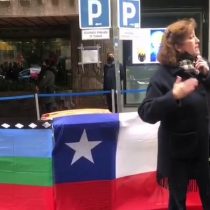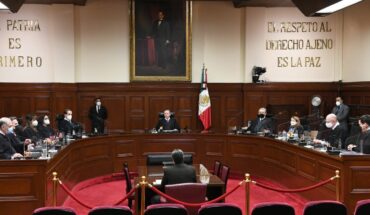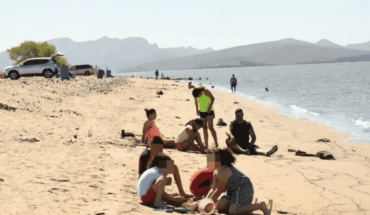
Apart from associating it with stereotypes of poverty and violence, what leads the average Chilean – especially if he has some small material resource – to feel superior or at least not to identify with the native people? The answer is simple: ignorance of their mestizo condition. This comes from the manipulation that has been done by the centralist elite that holds power for centuries. Let’s add that the Chilean never had an identity definition of his own, and the elites built themselves in power, considering themselves as a kind of caste closer to the European. How serious this ignorance or denial has had a profound impact on how the country has been built at all levels, such as on the education given to children in this regard. Without the teaching of the Mapuche or Aymara language in schools seen as a sign of barbarism, the powers of the State cultivated the divorce of the mestizo people with its root, the abandonment of natural human ethics, the disorder of the balance of the ecology of the mind, which gradually – not without warning – was transferred to the landscape , little by little he was leaving the Chilean people increasingly city. The popular soul left to be cared for and no longer fed with the silent wind of the spirit of a tradition of its own. We, the “patipelaos”, in two hundred and eleven years, did not even have the consolation of a worldview of our own that could take refuge from the pains of life. Even before arriving in the “New World,” the Catholic Church had succumbed to its ambiguity and its commitments to global powers. Because also – by rennetly and dogmatically disqualifying the spiritual visions of the Mapuche worldview – he aspired to “state religion”, to the management of temporal, political, material and this world’s power. It had been a few centuries since it had succeeded in Europe. And he did so not to correct evils or impose prophetic justice (to advance the Kingdom of God in the city of the earth), but to sin and forgive sin, to tie with civilization, to appease and capitulate again and again with “the unjust kings.” Discarding the theology of liberation, the Church in Chile and Latin America, did not want to “lower the crucified from the cross”, nor did it want to be invaded by the renewing Holy Spirit, attentive to the signs of the times to become “the new heaven and earth”, that concrete refuge that the poor of this world so much needed.
The truth is that 95% of Chileans are mestizos. From Pedro de Valdivia to date, each of us has in our genes about 65,336 people who lived before us. And among those, mostly Mapuche, Pewenche, Williche, Diaguita, Aymara, Kunza, Afro-descendants, etc. ancestry. The miscegenation, in the words of Gabriel Salazar, had no space of its own in this territory. The Spaniards denied them and the Mapuche rejected them. The bulk of the “rotated”, we are left to the good of God, without roots, without history, without rights. It is time, in this Constitution, for us to begin to recognise the double tribute from which we were deprived. We are the helpless boys in society. People without shadows. In the past despised and exploited. But, we survived.
Historically, the landless and barely literate mestizo people were never seen, let alone recognized or assumed. And less its fabric and cultural background, that in the colony had the “huachos”, those who celebrated the “Cruz de Mayo” with a great minga and playing the ancestral linao or the palin. Their parties (kawin) and their native sports were banned: they promoted disorder. And so Chile soon became grayer being the only country in Latin America without carnivals. No one worked for their first need: the spiritual need for identity. They were simply deprived of their unique substance, because for the Creole ruler — who also did not accept his own morenity — only the stamina of his shoulders, arms and hips mattered: a crowd necessary for mere servitude and for the hard work of the mine, the factory or the arrangement of the roadway. He had no choice but to submit to his patrons, to the tenancy; or banditry, an aspect well documented by historians such as Salazar and Pinto himself. Our destinies were defined when Chile determined to be European, with its back to indigenous wisdom, looking over its shoulder, ridiculing it in “picturesque folklore”, not wanting to see in it the great reserve of dignity that the native tradition had been cultivating on this soil. At some point in the first Constitution of Portales (1833), drafted by the aristocratic-conservative side that annulled all liberal ideas, the total denial of the Chilean indigenous component was established. The aboriginal matria was denied and only the Spanish homeland was accepted. And then laws and other constitutions ended up making it invisible to this day.
Since the time of the encomienda, the union of the productivist and superb European mind and the forced native arm is gestated to create a new amalgam of “race”: the mestizo Chilean people. The development of miscegenation was rapid. The Spanish soldier and then the landowner, fasted with every Pikunche, Williche or Mapuche woman he found at hand. It was no different among the Mapuche. This requested the Spanish woman or mestizo with great avidity, after the malones they led the captives to their territory and begot in them how many children they could. They only returned them voluntarily when they were sterile, or after motherhood…
The crisis of governability and the institutional inability to process the conflicts that two years ago shattered the accumulated citizen anger, has led Chile to a greater crossroads in its 211-year history as a nation. His aspiration to be the material “garden of Eden” of the new world has led him rather to the “garden of forking paths”. One path became untenable: the impossibility of creating the civilization of the selfishness of capital. Before (1973), the impossibility of the other path, that of Marxist civilization, atheist-rationalist collectivism, had already been verified. However, both are joined by a gross materialism, consumer and predator of the riches of the ecosystem. Because in short, it is a kind of “mineral religions, without gods or God, of a planet of lead, at the apex of Kali Yuga, the darkest time on earth”, diagnosed, anticipating, 40 years ago a lucid visionary. Unmasking the bipolar model of “golden calf worship,” Chile now faces reversing history, subverting it, and throwing it in another direction; heal the sick civilization, if it wants to avoid a fateful and fatal outcome. But unlike what happened with the hooliganism of the subway, what the new Constitution gives us is not the alternative of destroying, but of deconstructing, which is very different. It is the possibility of laying the foundations of a good life according to the original ecosystem that inherited our destiny, our prodigal nature. To deconstruct is to open the appearance, to allow the real being of us Chilean mestizos, to appear present, to make ourselves visible. Therefore, deconstructing is neither destruction nor less denial; it is, on the contrary, the construction of an appear that for centuries was hidden from the public good. And in the new Constitution, that gesture of affirmation, that original “yes,” is “to restore the gift of our mestizo identity,” as so well defined by our penquist constituent Amaya Alvez, mestizo she also like everyone else.
How can we recover from the earthquake of trust and deadly suspicion suffered by institutions, our leaders, governments, parliaments, judges, churches, etc.? To rearm the premises of a new culture and structure the spirit of a new Constitution, where do you get the strength and inspiration, advice and knowledge? We answer that from below, returning to the root, returning to the ancient kümun (“wisdom”) of this mapu, the original sense reserve of this earth. That is to say, it is a question of relearning with the wisdom of the Mapuche az mapu, of the “custom of the earth”, of that eco-moral and social code of the mother territory that for millennia guided the behavior of our ancestors. That is why today, we have real hope that the original part of us will vibrate as we are reunited with our ancestors, our brothers. We can already correct the idea of a Chilean nation; we have to come up with a new country full of close relatives, because this plan does not yet exist. More than a plurinational family of citizens, we have been a farm, a farm ravaged by a commercial and exporting caste that has been reproduced for more than two hundred years. That 1%, at least today, is humbled.
The content of this opinion column is the sole responsibility of its author, and does not necessarily reflect the editorial line or position of El Mostrador.





